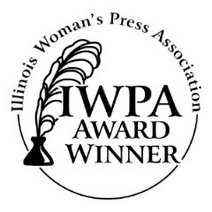I've read good reviews, mediocre reviews, bad reviews, and mixed reviews. An unknown author learns to rejoice in all of them if they indicate that someone has at least read his or her book and expressed honest opinions of it. However, today I noticed what may be a new kind of review: the "I didn't really read the book, but I'll write a review anyway." I don't object to the negative parts of the review (it's not technically a "bad review") but to the fact that it clearly indicates ignorance of the book's contents and some very basic facts.
After correctly listing my name and the book's title, the reviewer repeatedly refers to me as "Dr. Stone." First, my name is not Stone, and second, I do not have a doctorate. Then he refers to my long teaching career at "St. Olaf's College." My father graduated from St. Olaf College in Northfield, Minnesota, and my brother taught there for many years, but I did neither. My forty-year teaching career was at Wilbur Wright College, one of the City Colleges of Chicago. The reviewer could have found the correct information on the back cover of my book. He even implies that I retired from my lofty position as a professor and then became a lowly secretary, and he wonders how I feel about that. Well, I do some secretarial work for a neighbor occasionally, but it's hardly a career--and the whole matter and how I feel about it are explained on pages 95-96.
The reviewer does say that I am a good writer (Thanks!), but he shows little understanding of what I tried to do or why. As an occasional book reviewer myself, I never review a book unless I've read 95% to 100% of it and formed some idea of who the author is and of his or her purpose. And I always take time to get the basic facts straight!
I shall not identify this reviewer or the relatively unknown web site, since I have no desire to recommend either, and fortunately, there are several more valid reviews of my book on the Internet. Were I to judge this reviewer as superficially as he apparently judged my book, I'd say that he's an intellectual snob who has a problem with older women who write--but that's not fair to say, is it?
(My title was suggested by Lord Byron's satirical poem "English Bards and Scotch Reviewers," 1809.)
Readers: how about adding some comments about this post and/or the art of book reviewing? Click on "comments" below.
Copyright 2006 by Marlys Marshall Styne
Subscribe to:
Post Comments (Atom)


















5 comments:
I am someone who reads your blog and enjoys it. As such, I feel the need to say: If they reviewed your book, that means they probably liked it. If their review had some suggestions in it, then I doubt they meant to hurt you.
Maybe it's because I'm a former English teacher, but I have to object to obvious and repeated mistakes like the one with my name. I can excuse a typo or two, but referring to me as "Dr. Stone"? Once, maybe, but four or five times? And then there's the mistake about the location of my teaching career. These factual errors are a bit much! Suggestions and opinions are fine, good or bad. No, I don't think the reviewer itended to hurt me. I just think he needs to improve his reading and writing skills if he is to publish reviews on line or anywhere ele.
P.S. Yes, I just noticed that there's at least one typo in my comment. O.K. I meant to write "intended," not "itended." Sorry.
I only taught one semester at Truman College, also part of the City of Chicago Colleges, but I'm guessing that Wright is no more like St. Olaf's than Truman was.
A comment I received may provide a clue as to what happened with your reviewer. My reader said, "You say that the book deals with moral issues, particularly about the way people treat other people, and I clearly see what you mean. I was reading more for entertainment than for deep insights into the ethical behavior of people. 'Light reading' is the way I unwind at the end of the day. I work hard, am always with people, and don't want to have to dig for deep meanings when I read a mystery. I want to be entertained."
You're right. Wright College is nothing like St. Olaf. A reviewer's making such factual errors is ridiculous.
Also, I think we would probably agree that a reviewer should not write about a book with a stated purpose or approach foreign to his/her interests or field of expertise. I recently read a book about new-age spirituality because I had met the younger author, but I will not write a review because I can't appreciate the subject matter. I am not in the intended audience for that book. I'll leave the reviewing to those who are.
On the other hand, we can hardly leave the reviewing strictly to our relatives and friends!
Marlys
Post a Comment